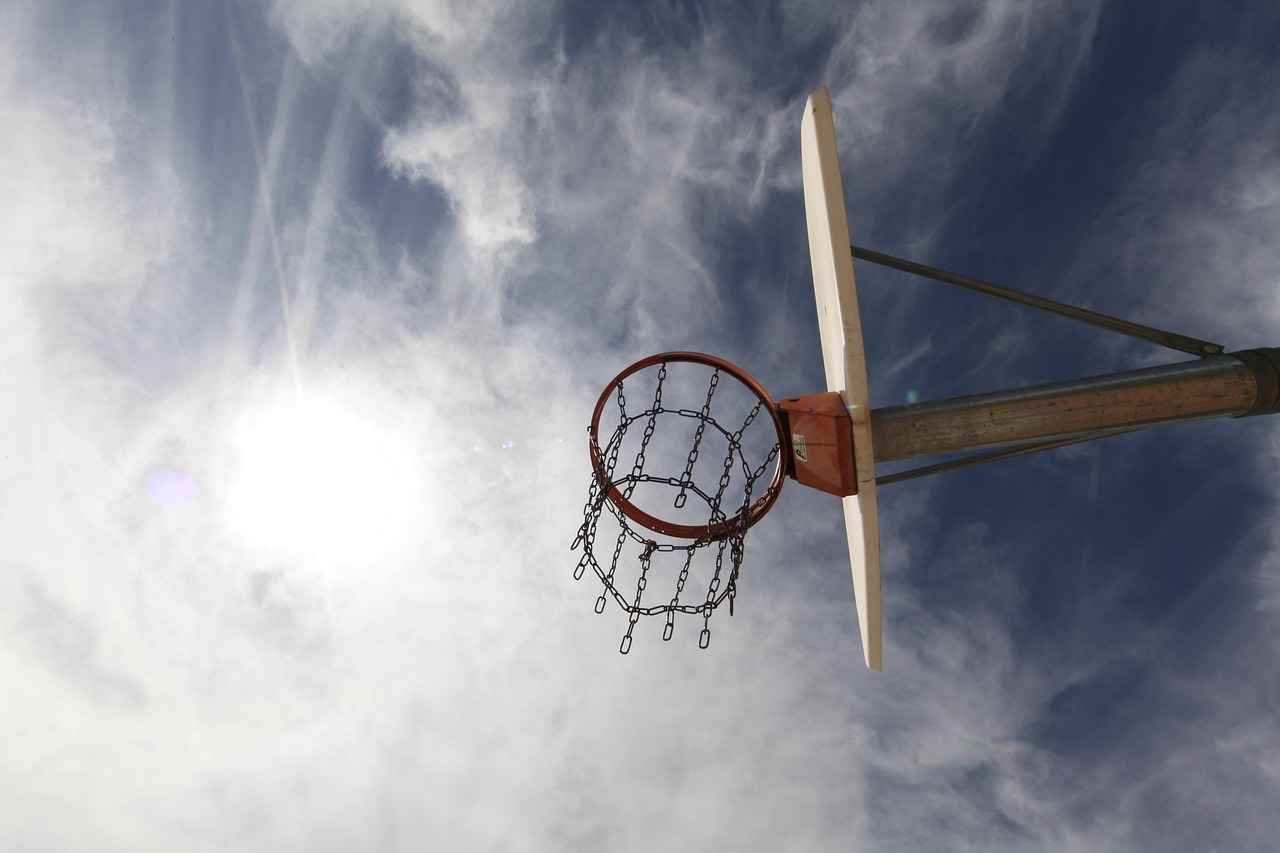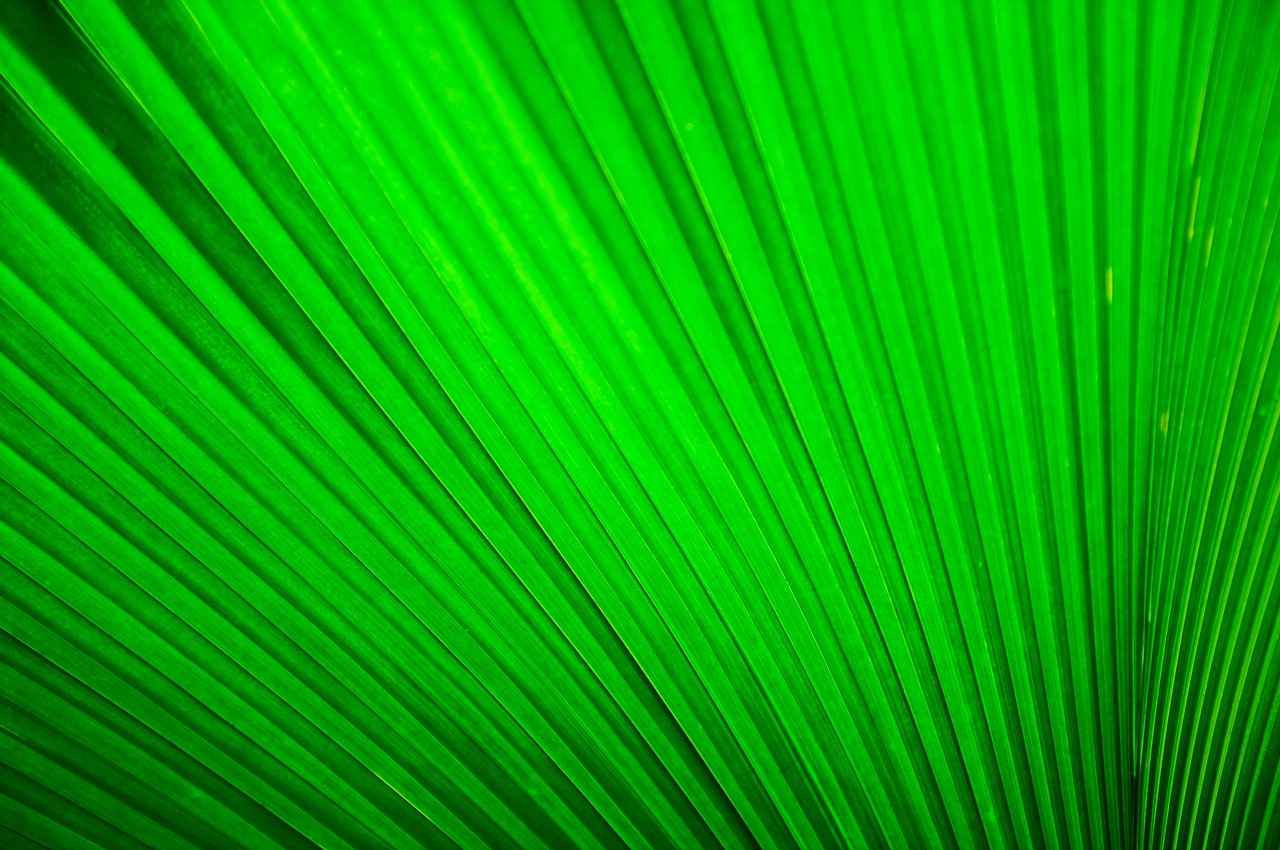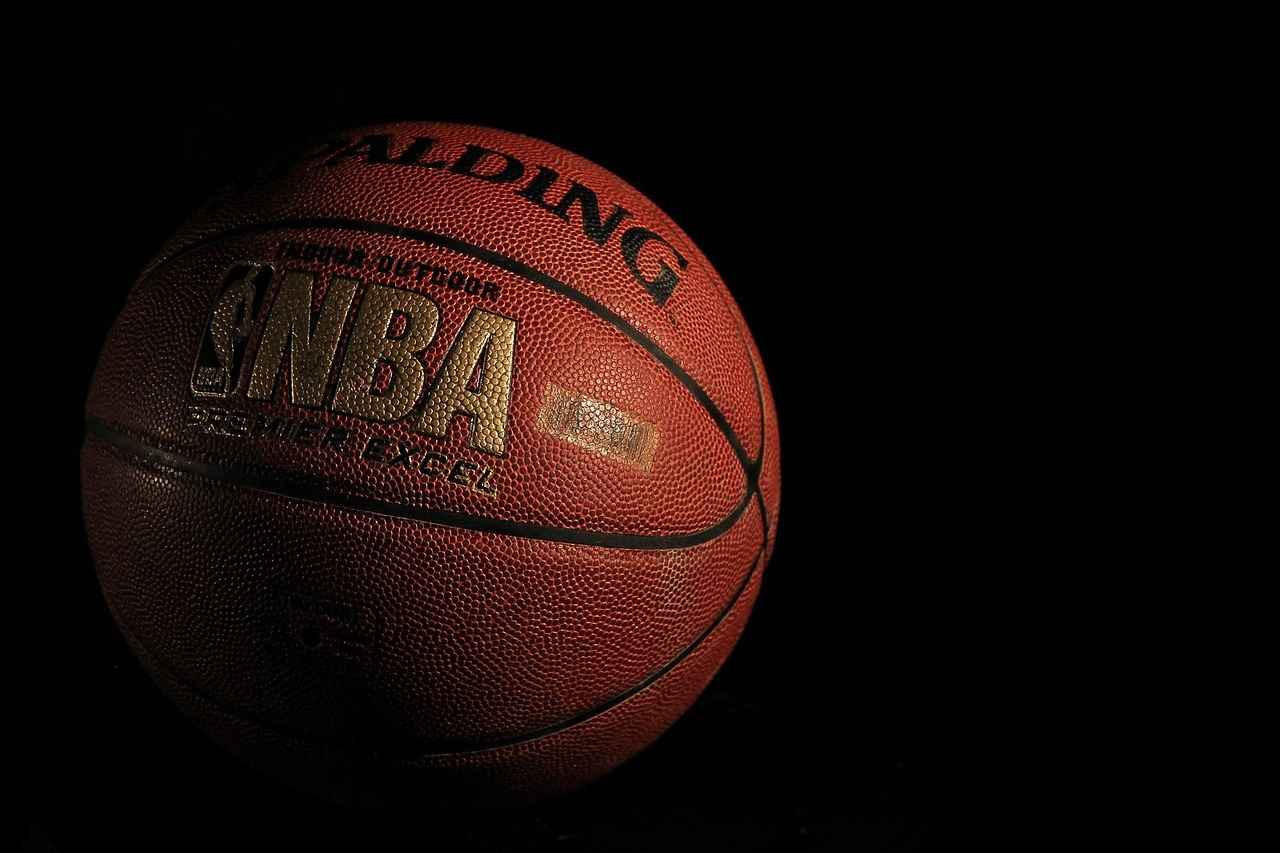This article explores effective strategies to access NBA League Pass without encountering blackouts in 2025, ensuring fans can enjoy uninterrupted basketball action. In the ever-evolving landscape of sports broadcasting, understanding how to circumvent blackouts is essential for dedicated fans who want to catch every game.
Understanding NBA League Pass Blackouts
To fully grasp how to bypass blackouts, it’s essential to understand what they are and why they occur. Blackouts are restrictions imposed on certain games to protect local broadcasters and teams. They often arise due to regional broadcasting rights that dictate where and how games can be viewed. This can lead to frustration among fans who wish to watch their favorite teams play.
Why Do Blackouts Happen?
Blackouts are implemented to uphold the interests of local broadcasters and teams. These restrictions are designed to ensure that local networks can profit from their exclusive rights to air games. When a game is blacked out, it typically means that the local broadcaster has the rights to show that game in your area. This can severely limit viewing options for fans who rely on NBA League Pass.
- Regional Broadcasting Rights: These rights determine the availability of games based on geographic location. Understanding these can help fans navigate around blackouts effectively.
- The Role of Local Networks: Local networks are crucial in broadcasting games, often leading to blackouts on NBA League Pass.
- Impact of Team Contracts: Contracts between teams and broadcasters can create blackout restrictions, affecting fans’ access to games.
Using VPNs to Bypass Blackouts
One popular method to watch NBA League Pass without blackouts is using a VPN (Virtual Private Network). VPNs work by creating secure connections that mask your location, allowing you to access content as if you were in a different region. This can be particularly effective in circumventing blackout restrictions.
- How VPNs Work: They encrypt your internet connection and route it through a server in a location of your choosing, effectively masking your true IP address.
- Choosing the Right VPN: Not all VPNs are created equal. Look for a reliable service with high-speed connections and a good track record for bypassing geo-restrictions.
Streaming Options Beyond NBA League Pass
If blackouts persist, there are alternative streaming options available. Many fans turn to cable subscriptions, which often provide access to NBA games without the blackout restrictions associated with NBA League Pass.
- Using Cable Subscriptions: Traditional cable can serve as a backup for fans facing blackouts, providing live access to games.
- Third-Party Streaming Services: Several services, such as Hulu Live, YouTube TV, and Sling TV, offer NBA game access and can be viable alternatives.
Tips for Maximizing Your Viewing Experience
Beyond avoiding blackouts, enhancing your viewing experience is essential. Here are some practical tips to ensure you enjoy every game:
- Optimal Streaming Quality Settings: Adjust your streaming settings to improve quality. Higher resolutions can enhance your viewing experience.
- Engaging with Other Fans Online: Connect with fellow fans through social media platforms or forums to share insights and enhance your viewing experience.
Legal Considerations When Bypassing Blackouts
Navigating the legal landscape surrounding blackouts is crucial. Using VPNs and other methods to access games can have legal implications.
- Understanding Terms of Service: Review the terms of service for NBA League Pass to avoid potential penalties.
- Consequences of Violating Broadcast Rights: Violating these rights can lead to consequences for viewers, including account suspension.
Future of NBA Streaming and Blackouts
As technology evolves, so does the landscape of sports streaming. Emerging technologies may influence how blackouts are handled in the future.
- Emerging Technologies in Streaming: New technologies are shaping the way we consume sports, potentially reducing the prevalence of blackouts.
- Changing Broadcast Agreements: Shifts in broadcast agreements could impact future viewing experiences for fans.

Understanding NBA League Pass Blackouts
To fully grasp how to bypass blackouts, it’s essential to understand what they are and why they occur, particularly regarding regional broadcasting rights and the impact on fans. Blackouts are restrictions placed on certain games to protect the interests of local broadcasters and teams. They typically occur when a game is being aired on a local network, preventing NBA League Pass subscribers from accessing that game live. This can be frustrating for fans who want to watch their favorite teams play, especially when the game is not available on national television.
The reasoning behind blackouts is primarily tied to regional broadcasting rights. Each local network has the exclusive rights to broadcast games within its designated area. This means that if you live in a city where a local team is playing, you may not be able to watch that game on NBA League Pass, as it is being shown on your local sports network. This arrangement is designed to ensure that local broadcasters can maintain their audience and advertising revenue, which is crucial for their operations.
Moreover, the impact on fans cannot be overlooked. For avid basketball enthusiasts, blackouts can lead to disappointment and frustration. Fans often feel disconnected from their teams when they cannot watch games, especially during critical matchups. This disconnect can be particularly pronounced for those who have invested in NBA League Pass, expecting to have access to all games. Consequently, understanding the implications of blackouts is vital for fans who wish to navigate their viewing options effectively.
- Local Network Influence: Local networks have significant power over which games are broadcasted in their regions. This often leads to conflicts between fans’ desires and the broadcasting schedules.
- Team Contracts: Teams often sign contracts with local broadcasters that include blackout restrictions, further complicating the viewing landscape for fans.
- National vs. Local Games: The distinction between national broadcasts and local games plays a crucial role in determining which games are subject to blackout restrictions.
In conclusion, understanding the mechanics behind NBA League Pass blackouts is essential for fans who want to enjoy uninterrupted basketball action. By being aware of how regional broadcasting rights and local networks operate, fans can better navigate their viewing experiences and find ways to watch their favorite teams without disruption.

Why Do Blackouts Happen?
Understanding the Reasons Behind NBA Blackouts
Blackouts are a common frustration for NBA fans, often leaving them unable to watch their favorite teams play live. To comprehend the reasons behind these restrictions, it is vital to explore the underlying factors that lead to the implementation of blackouts. This section will delve into the mechanisms of regional broadcasting rights, the influence of local networks, and the impact of team contracts.
One of the primary reasons for blackouts is the existence of regional broadcasting rights. These rights dictate which games can be shown in specific geographic areas, protecting the interests of local broadcasters. For instance, if a game is being aired on a local network, the NBA League Pass will restrict access to that game for viewers within the same region. This ensures that local broadcasters can maintain their audience and advertising revenue, which is crucial for their sustainability.
- Local Viewership: Blackouts are designed to encourage fans to watch games through local channels, thereby boosting local viewership.
- Advertising Revenue: Local broadcasters rely on advertising revenue from their broadcasts, which can be jeopardized if national platforms provide unrestricted access.
Local networks play a crucial role in the broadcasting landscape. They often hold exclusive rights to air games for specific teams, which can lead to blackouts on platforms like NBA League Pass. These networks invest heavily in acquiring broadcasting rights, and as a result, they have a vested interest in protecting their content from being available on competing platforms.
- Exclusive Contracts: Many teams sign exclusive contracts with local networks, further complicating the viewing landscape for fans.
- Community Engagement: Local broadcasts often include community-focused content, enhancing the overall viewing experience for fans.
Team contracts with broadcasters significantly influence blackout restrictions. These contracts often stipulate terms that limit the distribution of games to certain platforms and regions. When teams negotiate these contracts, they consider factors such as viewership, revenue, and brand partnerships. As a result, fans may find themselves unable to watch their favorite teams play if they are outside the designated viewing area.
- Revenue Sharing: Teams benefit financially from these contracts, which can lead to improved performance and investment in players.
- Brand Protection: Teams seek to maintain their brand integrity by ensuring that games are broadcast in a manner that aligns with their marketing strategies.
In conclusion, understanding the reasons behind blackouts is crucial for NBA fans seeking to navigate their viewing options effectively. By recognizing the roles of regional broadcasting rights, local networks, and team contracts, fans can better appreciate the complexities of sports broadcasting and find alternative ways to enjoy their favorite games.
Regional Broadcasting Rights
are a critical aspect of sports broadcasting that significantly impacts how fans access their favorite games. Understanding these rights is essential for any basketball enthusiast looking to enjoy NBA games without interruptions. These rights are agreements that determine which networks can broadcast specific games in designated geographical areas. They exist primarily to protect the interests of local broadcasters and teams, ensuring that they can monetize their content effectively.
When a game is broadcasted on a local network, it often leads to restrictions on streaming services like NBA League Pass. This is where the concept of blackouts comes into play. Blackouts occur when a game is not available for streaming in a particular region, typically because it is being aired on a local television channel. This situation can be frustrating for fans who want to watch their team play but find themselves unable to do so due to these restrictions.
To navigate these blackouts effectively, it’s important for fans to understand the underlying reasons for regional broadcasting rights. Local networks invest substantial resources in acquiring broadcasting rights to attract viewers and generate advertising revenue. As a result, they have the exclusive right to air games in their respective markets, which can lead to blackouts on streaming platforms that might otherwise offer those games.
For example, if a fan resides in Chicago and the Bulls are playing a game that is being broadcasted locally, that game will be blacked out on NBA League Pass in that area. Understanding this dynamic allows fans to adjust their viewing habits accordingly. They might consider alternative methods, such as subscribing to local cable services that carry the games or exploring third-party streaming options.
Moreover, fans can also stay informed about the broadcasting schedule for their favorite teams. Many local networks provide detailed schedules of when games will be aired, allowing fans to plan their viewing accordingly. This proactive approach can help mitigate the frustration associated with blackouts.
In addition to local networks, team contracts with broadcasters also play a significant role in determining blackout restrictions. These contracts often stipulate specific terms regarding game broadcasts and can vary widely between teams. Understanding these contractual obligations can provide further insight into why certain games are blacked out in specific regions.
In summary, are a complex but crucial aspect of sports viewing that every fan should understand. By being aware of how these rights work, fans can better navigate the challenges of blackouts and find ways to enjoy their favorite NBA games without interruption. Whether through local broadcasts, cable subscriptions, or alternative streaming services, knowledge is power when it comes to watching basketball.
The Role of Local Networks
in NBA Broadcasting
Local networks are a fundamental component of the NBA broadcasting ecosystem. They serve as the primary source for fans to watch their favorite teams play live. However, their influence extends beyond just providing the games; they also play a crucial role in the implementation of blackouts on platforms like NBA League Pass. Understanding the dynamics between local networks and broadcasting rights can help fans navigate their viewing options more effectively.
Local networks typically hold exclusive broadcasting rights for specific regions, which means that they have the authority to air games involving local teams. This exclusivity is designed to protect the interests of both the teams and the networks, ensuring that local fans have access to their games without competition from national broadcasts. However, this can lead to frustrating blackouts for NBA League Pass subscribers who reside in the same region as the local network.
When a game is aired on a local network, the NBA League Pass will often restrict access to that game for viewers in the same area. This is primarily to encourage fans to tune into their local broadcasts, thereby supporting regional broadcasters financially. As a result, fans may find themselves unable to watch games they have paid for through the NBA League Pass, leading to dissatisfaction and confusion.
Additionally, the contracts that local networks negotiate with teams can further complicate the situation. These contracts may include stipulations that dictate when and how games can be broadcast, which can vary significantly from one team to another. For example, some teams may have more favorable agreements that allow them to air more games nationally, while others may be restricted to local broadcasts only. This inconsistency can lead to a patchwork of viewing options for fans across the country.
Moreover, local networks often provide additional content, such as pre-game and post-game shows, player interviews, and in-depth analysis, which can enhance the viewing experience. This exclusive content is another reason why local networks are so valuable to fans. However, it also reinforces the need for fans to be aware of their local broadcasting schedules and the potential for blackouts on NBA League Pass.
In conclusion, while local networks play a vital role in providing access to NBA games, their influence on broadcasting rights can lead to blackouts that frustrate fans. Understanding the relationship between local networks and the NBA is essential for fans who want to enjoy uninterrupted access to their favorite teams. By being informed about local broadcasting schedules and potential blackout restrictions, fans can better navigate their viewing options and make the most of their NBA experience.
Impact of Team Contracts
In the world of professional sports, particularly in the NBA, team contracts with broadcasters play a significant role in shaping the viewing experience for fans. These contracts are designed to protect the interests of both the teams and the networks, but they often come with blackout restrictions that can frustrate dedicated fans. Understanding these contracts is crucial for fans who want to access games without interruptions.
What Are Team Contracts?
Team contracts with broadcasters outline the terms under which games are aired. These agreements typically specify broadcasting rights, including which networks can air games, the duration of the contract, and the financial arrangements involved. The primary goal of these contracts is to ensure that local broadcasters receive exclusive rights to show games in their respective regions, which can lead to blackouts on platforms like NBA League Pass.
How Do Blackouts Affect Fans?
For fans, blackout restrictions mean that certain games may not be available for viewing through NBA League Pass if they fall within a local broadcaster’s territory. This can be particularly frustrating for those who are unable to access their local broadcasts due to geographical limitations or who prefer streaming options. Consequently, fans may find themselves searching for alternative ways to watch their favorite teams, which can involve legal and technical challenges.
The Role of Local Broadcasters
Local broadcasters are essential in the ecosystem of sports broadcasting. They invest significant resources into acquiring the rights to air games and, as a result, have a vested interest in protecting their viewership. This often translates to stringent blackout policies that restrict access to games on streaming platforms. Fans need to be aware of these local broadcasting agreements to understand when and why blackouts occur.
Consequences of Blackouts
The consequences of blackout restrictions can be far-reaching. Not only do they limit fans’ access to live games, but they can also affect the overall fan engagement and loyalty to the team. When fans are unable to watch games, it may lead to a disconnect from the team, impacting attendance at games and overall support. Teams and leagues must balance the financial benefits of local broadcasting contracts with the need to keep their fan base engaged and connected.
Finding Workarounds
Many fans seek ways to bypass blackout restrictions, such as using VPNs or alternative streaming services. While these methods can be effective, they often come with their own set of challenges and potential legal implications. Fans should weigh the risks and benefits of these options carefully and stay informed about the terms of service associated with their streaming platforms.
The Future of Team Contracts and Blackouts
As the landscape of sports broadcasting continues to evolve, the nature of team contracts and blackout restrictions may also change. With the rise of streaming services and shifts in consumer behavior, leagues and teams may need to reconsider how they structure their broadcasting agreements. This could lead to more flexible viewing options for fans, ultimately enhancing their experience and connection to the game.
National vs. Local Games
The distinction between national and local games is crucial for fans looking to optimize their viewing experience, particularly when it comes to understanding blackouts. This section will clarify how these categories impact your access to NBA games and help you navigate the complexities involved.
In the realm of sports broadcasting, national games typically refer to those that are broadcasted on major networks such as ESPN, TNT, or ABC. These games are available to a broader audience and are often highlighted due to their significance, featuring marquee matchups or important playoff games. The key aspect of national games is that they are available to all subscribers of platforms like NBA League Pass, regardless of their geographical location.
On the other hand, local games are those that are broadcasted by regional sports networks (RSNs) and are often tied to specific teams. For example, if you live in Los Angeles, you might have access to games featuring the Los Angeles Lakers or Clippers through local channels such as Spectrum SportsNet. The challenge arises when these local broadcasts lead to blackouts on NBA League Pass, restricting access for fans who are outside the local viewing area.
| Type of Game | Broadcasting Network | Availability on NBA League Pass |
|---|---|---|
| National | ESPN, TNT, ABC | Available to all subscribers |
| Local | Regional Sports Networks | May be blacked out based on location |
Understanding these distinctions is essential for fans. If you reside in a team’s local market, you may find that local games are subject to blackout restrictions on NBA League Pass, meaning you will not be able to stream these games live unless you access them through your local broadcast provider. This can be frustrating for fans who want to keep up with their favorite teams but find themselves unable to do so due to regional restrictions.
Additionally, the impact of local networks cannot be overstated. They often have exclusive rights to broadcast games within their designated regions, which can lead to a lack of availability on national platforms. Therefore, if you are a fan of a team that is primarily covered by a local network, you may want to consider subscribing to that network or looking into alternative streaming options to ensure you don’t miss any action.
In summary, recognizing the differences between national and local games is vital for fans aiming to enjoy uninterrupted access to NBA content. By understanding how these categories affect blackouts, you can make informed decisions about your viewing options and ensure you catch every thrilling moment of the season.

Using VPNs to Bypass Blackouts
For avid basketball fans, the NBA League Pass offers an unparalleled opportunity to watch games live, but blackouts can be a frustrating barrier. One popular method to circumvent these restrictions is through the use of a Virtual Private Network (VPN). This section will delve into how VPNs function, their effectiveness in bypassing blackouts, and why they have become a go-to solution for many sports enthusiasts.
A VPN creates a secure connection over the internet, allowing users to mask their actual location by routing their internet traffic through servers in different regions. This technology effectively tricks streaming services like NBA League Pass into thinking that the user is accessing the service from a region where blackouts do not apply. Consequently, fans can enjoy their favorite games without interruption.
To understand the effectiveness of VPNs, it’s essential to recognize how blackouts are enforced. NBA League Pass uses geographical restrictions based on broadcasting rights, which vary by region. By using a VPN, fans can select a server located in a different area, thus gaining access to games that would typically be unavailable in their location. This method has proven successful for many users, making VPNs a popular choice among sports fans worldwide.
However, not all VPNs are created equal. When choosing a VPN for streaming NBA games, several factors should be considered:
- Speed: Streaming requires a fast and stable connection. Look for VPNs known for high-speed servers.
- Server Locations: A wide range of server locations can help you bypass more blackouts.
- Compatibility: Ensure the VPN is compatible with your streaming devices, such as smart TVs, tablets, or smartphones.
- No Bandwidth Limits: Some VPNs impose limits on data usage, which can hinder your streaming experience.
Additionally, it’s advisable to read user reviews and expert recommendations before committing to a VPN service. Many reputable providers offer trial periods or money-back guarantees, allowing users to test their services without risk.
While using a VPN to access NBA League Pass can be highly effective, it’s essential to be aware of the legal considerations involved. Streaming services often have terms of service that may prohibit the use of VPNs. Therefore, users should familiarize themselves with these terms to avoid potential penalties.
In conclusion, employing a VPN to bypass NBA League Pass blackouts is a practical solution for fans seeking uninterrupted access to their favorite games. By understanding how VPNs work and selecting the right service, viewers can enhance their streaming experience and enjoy every moment of the basketball season.
How VPNs Work
A Virtual Private Network (VPN) is a powerful tool that enables users to create a secure connection over the internet. By encrypting your data and masking your IP address, VPNs provide a layer of privacy and security that is increasingly important in today’s digital landscape. This section will delve into the technology behind VPNs, how they function, and the benefits they offer, particularly for accessing content that might be restricted in your region.
At its core, a VPN works by routing your internet connection through a server operated by the VPN provider. This process involves several key steps:
- Encryption: When you connect to a VPN, your data is encrypted. This means that even if someone intercepts your internet traffic, they will not be able to read it. Encryption protocols such as OpenVPN and L2TP/IPsec are commonly used to ensure your data remains confidential.
- IP Address Masking: By connecting to a VPN server, your actual IP address is hidden. Instead, websites and online services see the IP address of the VPN server. This is particularly useful for bypassing geographical restrictions, as it allows you to appear as if you are browsing from a different location.
- Secure Tunneling: The VPN creates a secure “tunnel” for your data to travel through. This tunnel protects your information from potential threats, such as hackers, especially when using public Wi-Fi networks.
These features make VPNs an excellent choice for accessing content that may be blocked or restricted in certain regions. For example, if you are trying to watch a game on NBA League Pass that is subject to blackout restrictions in your area, using a VPN can help you connect to a server in a different location where the game is available.
Moreover, VPNs can also enhance your online privacy. With increasing concerns about data privacy and surveillance, many users turn to VPNs to safeguard their browsing habits from prying eyes, including advertisers and government agencies. By masking your IP address, VPNs help in maintaining anonymity online.
However, it’s essential to choose a reliable VPN provider. Not all VPNs offer the same level of security and performance. Look for providers that offer strong encryption, a no-logs policy, and fast connection speeds to ensure a seamless streaming experience. Additionally, some VPNs may be better equipped to bypass geo-restrictions than others, so researching user reviews and expert recommendations can be beneficial.
In summary, understanding how VPNs work is crucial for anyone looking to enhance their online security and access restricted content. By leveraging the technology behind VPNs, users can enjoy a more flexible and secure internet experience.
Choosing the Right VPN
is a crucial step for any NBA fan looking to stream games without interruptions from blackouts. With numerous options available, it’s essential to identify the features that make a VPN reliable and effective for accessing NBA League Pass. This guide will help you navigate the selection process and find a VPN that meets your streaming needs.
When searching for a VPN, consider the following key factors:
- Server Locations: The more server locations a VPN has, the better your chances of bypassing blackouts. Look for VPNs with servers in areas where NBA games are available for streaming without restrictions.
- Speed and Performance: Streaming requires a fast and stable connection. Choose a VPN that offers high-speed servers to ensure you can watch games in high definition without buffering.
- No-Logs Policy: Privacy is paramount when using a VPN. Opt for services that have a strict no-logs policy, meaning they do not store any information about your online activities.
- Compatibility: Ensure the VPN is compatible with your devices. Whether you’re using a smartphone, tablet, or smart TV, the VPN should support multiple platforms.
- Customer Support: Reliable customer support can make a significant difference, especially if you encounter issues while streaming. Look for VPNs that offer 24/7 support through various channels.
- Pricing: While there are free VPN options available, they often come with limitations. Investing in a paid VPN service usually provides better performance, security, and customer support.
Once you’ve identified potential VPNs, take the time to read reviews and user feedback. This can provide insight into their reliability and effectiveness for streaming NBA games. Additionally, many VPNs offer trial periods or money-back guarantees, allowing you to test their service without commitment.
Another important aspect to consider is the ability to bypass geo-restrictions. Some VPNs are better than others at accessing streaming services that enforce strict location checks. Research whether the VPN you are considering has a track record of successfully unblocking NBA League Pass and other sports streaming services.
Lastly, keep in mind that using a VPN to bypass blackouts should be done with an understanding of the legal implications. While using a VPN is legal in many countries, it’s essential to familiarize yourself with the terms of service of the streaming platform you are using to avoid potential penalties.
In summary, choosing the right VPN for streaming NBA games without blackouts involves careful consideration of several factors, including server locations, speed, privacy policies, and customer support. By conducting thorough research and selecting a reputable VPN, you can enjoy uninterrupted access to your favorite basketball games.

Streaming Options Beyond NBA League Pass
If you find yourself facing persistent blackouts while trying to enjoy NBA games through League Pass, rest assured that there are alternative streaming options available. This section will explore various platforms and services where fans can watch NBA games live, ensuring that you never miss out on the action.
One of the most reliable alternatives to NBA League Pass is traditional cable subscriptions. Many cable providers offer packages that include channels broadcasting NBA games, such as ESPN, TNT, and regional sports networks. These channels often cover a significant number of games, especially during the playoffs.
- Check Local Listings: Always verify your local listings to see which games are available in your area.
- Consider Bundles: Many cable companies offer bundles that include sports channels at a competitive price.
- Use DVR Features: Most cable subscriptions come with DVR capabilities, allowing you to record games and watch them later.
Several third-party streaming services provide access to NBA games, serving as excellent alternatives for fans experiencing blackouts. These platforms often feature a variety of sports channels and can be accessed on multiple devices.
- Hulu + Live TV: This service offers access to ESPN, TNT, and other networks broadcasting NBA games, making it a viable option for fans.
- YouTube TV: Known for its extensive channel lineup, YouTube TV includes major sports networks that air NBA games.
- Sling TV: With customizable packages, Sling TV allows users to select channels that include NBA coverage, which can help bypass blackout restrictions.
In some regions outside the United States, international streaming services may offer NBA games without blackout restrictions. For instance, platforms like NBA League Pass International provide access to games without the same blackout limitations found in the U.S. version.
- Check Availability: Depending on your location, you may have access to different streaming options.
- Language Options: Some international services provide commentary in various languages, enhancing the viewing experience for non-English speakers.
Another innovative way to catch NBA games is through social media platforms. While full games may not be available, highlights and key moments are often shared on platforms like Twitter and Facebook. Additionally, YouTube channels dedicated to sports often post game recaps and highlights.
- Follow Official NBA Accounts: Stay updated with real-time highlights and game summaries directly from the NBA’s official social media accounts.
- Engage with Fan Communities: Online communities on platforms like Reddit may share live streams or links to games, although these options may not always be legal or reliable.
In summary, while NBA League Pass is a popular choice for streaming games, various alternative options exist for fans facing blackouts. From traditional cable subscriptions to innovative third-party services and social media platforms, basketball enthusiasts can find multiple ways to stay connected with their favorite teams and players. By exploring these alternatives, you can ensure that your viewing experience remains uninterrupted, regardless of blackout restrictions.
Using Cable Subscriptions
For basketball enthusiasts, having access to NBA games is crucial, especially during the thrilling playoff season. While many fans have turned to streaming services, traditional cable subscriptions still play a vital role in ensuring uninterrupted access to live games. This section will explore how cable subscriptions can serve as an effective backup for fans facing blackouts, ensuring that no game is missed.
One of the primary advantages of cable subscriptions is their ability to provide local broadcasts of NBA games. Local networks often have exclusive rights to air games featuring home teams, which means that fans can tune in to watch their favorite players in action without the risk of blackout restrictions that may come with streaming services. This is particularly beneficial for fans who reside in the same region as their favorite teams, as they can enjoy every game live from the comfort of their homes.
In addition to local broadcasts, cable subscriptions typically include comprehensive sports packages that cover a wide range of NBA games, including nationally televised matchups. This ensures that fans have access to marquee games that may not be available on NBA League Pass due to blackout policies. By subscribing to cable, fans can enjoy a full slate of games, including playoffs and finals, without worrying about missing out on critical moments in the season.
Furthermore, cable subscriptions often come with additional features that enhance the viewing experience. Many providers offer DVR services, allowing fans to record games and watch them at their convenience. This is especially useful for those who may have scheduling conflicts or cannot watch a game live. With the ability to pause, rewind, and fast-forward through games, fans can tailor their viewing experience to fit their needs.
Another significant benefit of cable subscriptions is the availability of multiple channels broadcasting NBA games. This redundancy means that even if one channel experiences technical difficulties, fans can switch to another channel to continue watching the game. This level of reliability is crucial during high-stakes games where every moment counts.
For fans living in areas with frequent blackouts on streaming services, having a cable subscription can be a game-changer. It acts as a safety net, ensuring that fans can always find a way to watch their teams play, regardless of the restrictions imposed by streaming platforms. In regions where blackout policies are particularly stringent, cable subscriptions provide a straightforward solution to accessing live NBA games.
In conclusion, while streaming services have gained popularity, traditional cable subscriptions remain a robust option for NBA fans. By providing local broadcasts, extensive game coverage, DVR capabilities, and multiple viewing channels, cable subscriptions serve as a reliable backup for fans facing blackouts. For those passionate about basketball, investing in a cable subscription can be a wise decision to ensure that they never miss a moment of the action.
Third-Party Streaming Services
In the realm of sports broadcasting, particularly for NBA games, have emerged as viable alternatives for fans looking to bypass traditional viewing restrictions. These services can be instrumental in providing access to games that may be subject to blackouts due to regional broadcasting rights. In this section, we will evaluate some of the most popular third-party streaming options available and their effectiveness in circumventing these limitations.
One of the most well-known third-party services is fuboTV. This platform offers a comprehensive package that includes access to various sports networks, allowing fans to watch NBA games live without the risk of blackouts in many cases. With a user-friendly interface and high-definition streaming, fuboTV is a favorite among sports enthusiasts. Additionally, its cloud DVR feature enables users to record games and watch them later, providing flexibility for those with busy schedules.
Another noteworthy option is Hulu + Live TV, which combines on-demand content with live television, including major sports channels broadcasting NBA games. This service is particularly appealing to fans who want a broader range of entertainment options alongside their sports viewing. Hulu’s extensive library of shows and movies, combined with live sports access, makes it a versatile choice for households with diverse viewing preferences.
YouTube TV is also a strong contender in the third-party streaming landscape. With its robust lineup of channels that includes ESPN and TNT, fans can enjoy most NBA games without worrying about blackouts. YouTube TV’s unlimited DVR storage allows users to record multiple games and catch up on missed action at their convenience. The platform’s compatibility with various devices further enhances its accessibility, making it a popular choice among tech-savvy viewers.
For those seeking a budget-friendly option, Sling TV offers flexible packages that can be tailored to individual preferences. While it may not include all NBA games, Sling TV provides access to key sports channels at a lower price point, making it an attractive option for casual fans. The service’s ability to stream on multiple devices simultaneously caters to families or groups who want to watch different games or shows concurrently.
While these third-party services provide excellent alternatives, it’s important to note that the effectiveness of bypassing blackouts may vary based on the user’s location and the specific agreements in place between the service and the NBA. Therefore, potential users should conduct thorough research and consider their individual viewing needs before committing to a subscription.
In summary, third-party streaming services like fuboTV, Hulu + Live TV, YouTube TV, and Sling TV offer diverse options for NBA fans looking to enjoy games without the hassle of blackouts. By evaluating the features and benefits of each service, fans can make informed decisions that enhance their overall viewing experience.

Tips for Maximizing Your Viewing Experience
When it comes to watching NBA games, simply having access to the content is not enough. To truly enjoy every moment of the game, it’s essential to focus on enhancing your overall viewing experience. Here are some practical and effective tips to ensure that you get the most out of your NBA League Pass subscription.
- Optimal Streaming Quality Settings
One of the first steps to improving your viewing experience is to adjust your streaming quality settings. Make sure to select the highest available resolution that your internet connection can support. A stable and high-speed internet connection can significantly reduce buffering and improve video clarity. Consider using a wired connection instead of Wi-Fi for optimal performance.
- Engaging with Other Fans Online
Connecting with fellow fans can add a social dimension to your viewing experience. Platforms like Twitter, Reddit, and dedicated sports forums allow fans to share insights, discuss plays, and celebrate wins together. Engaging with a community of fans can make the experience more enjoyable and immersive.
- Creating a Comfortable Viewing Environment
Your physical environment plays a crucial role in how you enjoy games. Ensure that your viewing area is comfortable by investing in a good-quality screen, comfortable seating, and proper lighting. Reducing glare on your screen can enhance visibility, making it easier to catch every detail of the game.
- Utilizing Multiple Devices
Consider using multiple devices to watch games. Whether it’s a smart TV, tablet, or smartphone, having different options allows you to choose the best device for your environment. Additionally, some devices may offer better streaming quality or features, such as picture-in-picture mode, which can enhance your viewing experience.
- Taking Advantage of Game Replays
NBA League Pass offers the option to watch game replays. If you missed a live game, take advantage of this feature to catch up on all the action. Replays can also be useful for analyzing gameplay, allowing you to appreciate the finer details of strategies and player performances.
- Customizing Notifications
Stay updated with your favorite teams by customizing notifications. NBA League Pass allows you to set alerts for game start times, score updates, and highlights. This ensures that you never miss out on critical moments, keeping you engaged throughout the season.
- Exploring Interactive Features
Many streaming services, including NBA League Pass, offer interactive features such as player stats, live commentary, and social media integration. Take advantage of these tools to enhance your understanding of the game and stay engaged during live broadcasts.
By implementing these tips, you can significantly enhance your viewing experience while watching NBA games. Whether you’re a casual fan or a die-hard supporter, these strategies will help you enjoy every game to its fullest potential.
Optimal Streaming Quality Settings
Adjusting your streaming settings can significantly enhance your viewing experience, especially when it comes to sports like basketball. The quality of the video stream can affect not only the clarity of the game but also the overall enjoyment of the experience. Here, we will explore various techniques to optimize video quality for seamless gameplay, ensuring you don’t miss a moment of the action.
- Understanding Your Internet Connection: Before diving into specific settings, it’s crucial to assess your internet speed. A stable and fast connection is the backbone of high-quality streaming. Use a speed test tool to determine your download and upload speeds. Ideally, you should have at least 25 Mbps for HD streaming and higher for 4K content.
- Adjusting Streaming Quality: Most streaming platforms, including NBA League Pass, allow users to select their preferred streaming quality. Navigate to the settings menu and choose the optimal quality based on your internet speed. If your connection is slow, consider lowering the quality to avoid buffering.
- Using Wired Connections: For the best performance, consider using an Ethernet cable instead of Wi-Fi. Wired connections tend to be more stable and faster, reducing the chances of interruptions during the game.
- Optimizing Device Settings: Ensure that your device settings are optimized for streaming. Close unnecessary applications that may consume bandwidth and adjust the display settings to match your screen resolution for the best viewing experience.
- Clearing Cache and Cookies: Regularly clearing your browser’s cache and cookies can enhance streaming performance. This practice helps in loading the latest version of the streaming platform without any glitches.
- Utilizing Quality of Service (QoS) Settings: If you have a router with QoS settings, prioritize streaming traffic. This feature can help allocate more bandwidth to your streaming device, reducing lag and improving video quality.
- Monitoring Network Traffic: Keep an eye on other devices connected to your network. If multiple devices are streaming or downloading large files simultaneously, it can strain your bandwidth. Consider scheduling heavy downloads for off-peak hours.
- Choosing the Right Streaming Device: The device you use to stream can also impact video quality. Devices like smart TVs, streaming sticks, or gaming consoles often provide better performance compared to mobile devices or older computers.
- Adjusting Audio Settings: While video quality is crucial, don’t overlook audio settings. Ensure you’re using the best audio output option available on your device to enhance the overall experience.
By implementing these adjustments, you can significantly improve your streaming quality, making your viewing experience not only enjoyable but also seamless. Watching your favorite NBA games without interruptions allows you to fully immerse yourself in the action, cheering for your team with clarity and excitement.
Engaging with Other Fans Online
can significantly enhance your experience as a basketball enthusiast. In today’s digital age, connecting with fellow fans is easier than ever, thanks to various online platforms and communities. This section will delve into the myriad ways fans can interact, share insights, and enjoy NBA games together.
One of the most popular platforms for fan engagement is social media. Platforms like Twitter, Facebook, and Instagram allow fans to follow their favorite teams, players, and sports analysts. Engaging in discussions, sharing highlights, and participating in live game chats are just a few ways fans can connect. For instance, during games, many fans use Twitter to share real-time reactions, creating a sense of camaraderie even among those who are miles apart.
Another excellent avenue for fan interaction is through dedicated forums and websites. Websites like Reddit have specific subreddits, such as r/NBA, where fans can post discussions, memes, and game analyses. These forums provide a space for deeper conversations about strategies, player performances, and team dynamics. Engaging in these discussions can lead to enriched understanding and appreciation of the game.
| Platform | Advantages | Disadvantages |
|---|---|---|
| Social Media | Real-time updates, broad reach | Information overload, misinformation |
| Forums | In-depth discussions, community building | Less immediate, can be niche |
| Streaming Services with Chat Features | Live interaction, shared viewing experience | Requires subscription, potential technical issues |
In addition to social media and forums, many streaming services now offer integrated chat features that allow viewers to comment and interact with each other during live games. This creates a virtual watch party atmosphere, where fans can celebrate victories and commiserate losses together. Such features not only enhance the viewing experience but also foster a sense of community among fans.
For those who prefer a more structured approach, joining fan clubs or online communities can be beneficial. Many teams have official fan clubs that offer exclusive content, merchandise, and opportunities to meet other fans. These clubs often have online forums or social media groups where members can discuss games, share their experiences, and even organize meet-ups.
Moreover, participating in fantasy basketball leagues can also be an engaging way to connect with other fans. These leagues require participants to follow games closely, analyze player performances, and make strategic decisions. Engaging in fantasy leagues often leads to discussions with other participants, enhancing the overall enjoyment of the NBA season.
Finally, attending live games or fan events can provide an unparalleled opportunity to meet fellow fans in person. Many teams host events, such as watch parties or fan festivals, where supporters can gather, share their passion for the game, and build lasting friendships. These experiences can create unforgettable memories and deepen the connection between fans and the sport.
In conclusion, engaging with other fans online not only enriches the viewing experience but also fosters a sense of belonging within the basketball community. By utilizing social media, forums, streaming services, fan clubs, and fantasy leagues, fans can enhance their enjoyment of the NBA and connect with like-minded individuals who share their passion for the game.

Legal Considerations When Bypassing Blackouts
Navigating the legal landscape surrounding blackouts is crucial. This section outlines the legal implications of using VPNs and other methods to access games.
When it comes to bypassing blackouts, understanding the legal ramifications is essential for every sports fan. Blackouts are generally enforced to protect the interests of local broadcasters and teams, ensuring that they retain their audience and revenue. However, many fans turn to VPNs and other means to circumvent these restrictions. While this might seem like a quick fix, it is important to be aware of the potential legal consequences that may arise from such actions.
Understanding Terms of Service
Before using any service like NBA League Pass, it is vital to thoroughly review the terms of service. These documents outline the legal agreements between the service provider and the user. Violating these terms can result in penalties, including account suspension or termination. Most streaming services explicitly state that bypassing geographical restrictions is against their policies. Ignoring these rules can lead to serious repercussions.
Consequences of Violating Broadcast Rights
Using a VPN to access content that is subject to blackout restrictions can have legal implications. Broadcast rights are typically protected under copyright laws, and unauthorized access can be considered a violation. This could lead to legal action from the content providers, including fines or lawsuits. Moreover, users who engage in such practices may find themselves on the receiving end of legal notices, which could complicate their streaming experience.
Potential Legal Actions
While individuals may think that using a VPN offers anonymity, it does not guarantee protection from legal action. Content providers have the means to track users who violate their terms, and they may pursue legal action against those who repeatedly bypass blackouts. It is essential to weigh the risks against the desire to access content that is otherwise unavailable.
Understanding Local Laws
Legal considerations can also vary by region. In some countries, using a VPN to access blocked content may not be illegal, while in others, it could lead to fines or other penalties. Therefore, it is crucial to familiarize oneself with local laws regarding internet usage and copyright infringement to avoid unintentional violations.
Consulting Legal Experts
If you are unsure about the legal implications of using a VPN or other methods to bypass blackouts, consulting with a legal expert is advisable. They can provide tailored advice based on your specific situation and help you navigate the complexities of copyright laws and broadcasting rights.
In summary, while the desire to access NBA games without blackouts is understandable, it is essential to approach this issue with caution. Understanding the legal landscape, including terms of service and local laws, can help you make informed decisions and enjoy your favorite sports without facing potential legal consequences.
Understanding Terms of Service
When engaging with NBA League Pass, it is crucial for users to thoroughly review the terms of service (ToS) to ensure a smooth viewing experience. These terms outline the rights and responsibilities of both the service provider and the user, and understanding them can help avoid potential penalties or restrictions.
The terms of service for NBA League Pass cover various aspects, including subscription details, payment methods, and usage restrictions. Here are some key areas users should pay attention to:
- Subscription Plans: NBA League Pass offers different subscription options, including monthly and annual plans. Users should be aware of the pricing structure, renewal terms, and any promotional offers that might be available.
- Usage Restrictions: The ToS clearly outline what is considered acceptable use of the service. This includes restrictions on sharing accounts, streaming from multiple devices simultaneously, and using VPNs to bypass regional restrictions.
- Content Availability: Users should understand that not all games may be available for viewing due to blackouts or regional restrictions. The ToS provide details about how these limitations are enforced and what users can expect.
- Cancellation Policies: Familiarizing oneself with the cancellation process is important. The ToS typically specify how users can cancel their subscriptions and any potential fees associated with early termination.
- Liability Limitations: The ToS often include clauses that limit the service provider’s liability in case of service interruptions or technical issues. Knowing these limitations can help users set realistic expectations regarding service reliability.
By taking the time to read and understand the terms of service, users can mitigate the risks of violating any rules that might lead to penalties such as account suspension or termination. Additionally, being informed about their rights can empower users to make better decisions regarding their subscription and usage of the NBA League Pass.
It is also advisable for users to periodically revisit the ToS, as they may be updated over time. Staying informed about any changes ensures that users remain compliant and can continue to enjoy their favorite NBA games without interruptions.
In summary, understanding the terms of service for NBA League Pass is essential for a hassle-free viewing experience. By being aware of subscription details, usage restrictions, content availability, cancellation policies, and liability limitations, users can navigate the service effectively and avoid potential penalties.
Consequences of Violating Broadcast Rights
Understanding the is crucial for any sports fan looking to access content through unconventional means. While the temptation to bypass blackouts may seem appealing, it is essential to recognize the potential risks involved. This section delves into the implications of such actions and offers insights into the legal landscape surrounding sports broadcasting.
Firstly, it is important to note that violating broadcast rights can lead to significant legal repercussions. Many sports leagues, including the NBA, have stringent agreements in place with broadcasters to protect their regional rights. If a viewer is caught using methods such as VPNs to circumvent these restrictions, they may face penalties ranging from account suspension to legal action. The NBA’s Terms of Service explicitly state that users must comply with all applicable laws and agreements, making it clear that circumventing blackouts is a violation of their policies.
Furthermore, users who engage in these activities risk compromising their personal data. Many VPN services may not provide the level of security they claim. This can expose users to data breaches or even identity theft, particularly if they choose a less reputable provider. It is essential to conduct thorough research before selecting a VPN to ensure that it has a solid reputation for protecting user privacy.
In addition to legal and security risks, violating broadcast rights can also undermine the integrity of the sports ecosystem. Local broadcasters and teams rely on viewership and advertising revenue to sustain their operations. By bypassing blackouts, fans contribute to a loss of revenue that can ultimately affect the quality of broadcasts and the financial stability of teams. This can lead to reduced investment in player development, facilities, and overall league growth.
Moreover, sports leagues are increasingly employing advanced technologies to detect and prevent unauthorized access to their content. This includes tracking IP addresses and employing algorithms that can identify unusual viewing patterns. As a result, fans who attempt to bypass blackouts may find their access to games restricted, leading to a frustrating viewing experience.
In conclusion, while the allure of accessing NBA games without blackouts may be tempting, the potential consequences far outweigh the benefits. Legal repercussions, data security risks, and the impact on the sports ecosystem are all critical factors to consider. Fans are encouraged to explore legitimate avenues for viewing games, such as subscribing to cable services or utilizing authorized streaming platforms, to ensure they enjoy their favorite sports without facing unnecessary risks.

Future of NBA Streaming and Blackouts
As the digital landscape continues to evolve, the **future of NBA streaming** is poised for significant transformation. With advancements in technology and shifts in consumer behavior, fans can expect a more seamless and accessible viewing experience. This section delves into various factors that could influence the future of NBA streaming, particularly concerning blackout restrictions.
- Emerging Technologies in Streaming
New technologies are rapidly changing how sports content is delivered. Innovations such as **5G networks**, **cloud computing**, and **artificial intelligence** are likely to enhance streaming quality and reduce latency. For instance, 5G technology promises faster download speeds, allowing fans to watch games in high definition without buffering. Additionally, AI can offer personalized viewing experiences by analyzing user preferences and suggesting content accordingly. These advancements could lead to a scenario where traditional blackout restrictions become less relevant, as fans can access games in real-time from anywhere.
- Changing Broadcast Agreements
The landscape of broadcasting agreements is continually shifting. As more streaming platforms emerge, traditional networks may need to reassess their contracts with the NBA and its teams. This could lead to a more flexible approach to blackouts, where regional restrictions are eased or eliminated altogether. For example, partnerships between the NBA and streaming giants like **Amazon Prime** or **Apple TV+** could create new opportunities for fans to watch games without the frustration of blackouts. As these agreements evolve, they may pave the way for a more inclusive viewing experience that prioritizes fan accessibility.
- The Rise of Direct-to-Consumer Models
A noticeable trend in the sports industry is the shift towards **direct-to-consumer (DTC)** models. The NBA has already begun to explore this avenue through its own streaming service. By offering fans direct access to games, the league can bypass traditional broadcasting channels and their associated blackout restrictions. This trend not only empowers fans but also allows the NBA to retain more revenue from subscriptions. As more leagues and teams adopt DTC strategies, the concept of blackouts may become obsolete, creating a more fan-friendly environment.
- Fan Engagement and Social Media Integration
The future of NBA streaming will likely see increased integration with social media platforms. Fans are already engaging with live content on platforms like **Twitter**, **Instagram**, and **TikTok**. By leveraging these channels, the NBA can create interactive experiences that complement live broadcasts. Imagine watching a game while simultaneously participating in live polls or discussions on social media. Such engagement could reduce the impact of blackouts, as fans can still connect with the game even if they cannot watch it live.
In conclusion, the future of NBA streaming is bright, with numerous possibilities on the horizon. As technology advances and broadcasting agreements evolve, the potential for a more accessible and enjoyable viewing experience for fans is greater than ever. The elimination of blackouts may soon become a reality, allowing fans to enjoy uninterrupted basketball action from anywhere in the world.
Emerging Technologies in Streaming
As the digital landscape evolves, so too does the way we consume sports content. The emergence of new technologies is transforming the viewing experience, particularly in the context of NBA League Pass and potential blackout restrictions. This section delves into the latest trends that are poised to influence how blackouts are managed in the future.
One of the most significant advancements is the rise of cloud-based streaming. This technology allows for greater flexibility in content delivery, enabling fans to access games from multiple devices without the limitations imposed by traditional broadcasting methods. With cloud services, the possibility of dynamic content delivery is enhanced, meaning that games could potentially be streamed based on user location and preferences, reducing the likelihood of blackouts.
Another important trend is the integration of artificial intelligence (AI) in content distribution. AI algorithms can analyze viewer data to predict and respond to demand in real-time. This means that if a significant number of fans are attempting to access a game that is typically blacked out in their region, the system could automatically adjust availability or suggest alternative viewing options. Such innovations could lead to a more seamless experience for fans, minimizing frustration related to blackouts.
The rise of 5G technology is also a game-changer for sports streaming. With faster download speeds and lower latency, fans can enjoy high-definition streams without interruptions. This technology not only enhances the viewing experience but also opens up new possibilities for interactive features, such as live statistics and multi-angle viewing. As 5G becomes more widely adopted, it could fundamentally alter how games are broadcasted and consumed, potentially reducing the impact of blackouts.
Moreover, blockchain technology is making waves in the sports industry by providing secure and transparent ways to manage broadcasting rights. This could lead to more equitable distribution of content, where fans have greater access to games without the constraints of traditional blackouts. By utilizing decentralized networks, blockchain can facilitate direct transactions between fans and content providers, ensuring that viewers can enjoy their favorite teams without regional restrictions.
Finally, the growing popularity of smart TVs and connected devices is changing how consumers engage with sports content. These devices often come equipped with apps that allow for easy access to various streaming services, including NBA League Pass. As more viewers turn to these platforms, the demand for flexibility in viewing options will likely push providers to reconsider existing blackout policies.
In summary, the convergence of cloud technology, AI, 5G, blockchain, and smart devices is paving the way for a future where sports blackouts may become a thing of the past. As these technologies continue to develop, fans can look forward to an increasingly accessible and engaging sports viewing experience.
Changing Broadcast Agreements
have become a focal point in the sports industry, especially in the context of basketball. As the landscape of media consumption shifts, so too do the agreements that dictate how fans access their favorite games. This section delves into the implications of these changes and what they mean for the viewing experiences of NBA fans.
The rise of streaming services has drastically altered the traditional broadcasting landscape. Major platforms like ESPN+, Amazon Prime Video, and Hulu are now competing with conventional networks for sports rights. As a result, leagues are re-evaluating their broadcast agreements to include these new players. This shift could lead to more flexible viewing options for fans, as streaming services often provide on-demand access and fewer restrictions compared to traditional cable networks.
Another significant trend is the globalization of NBA broadcasts. As the league expands its reach into international markets, broadcast agreements are being restructured to cater to diverse audiences. This means that fans in different regions may have access to games that were previously unavailable to them, enhancing the overall viewing experience. However, this globalization can also lead to more complex blackout restrictions, as local rights holders seek to protect their interests.
As broadcast agreements evolve, so do the revenue models associated with them. With the advent of digital platforms, leagues are exploring alternative monetization strategies, such as subscription-based models and pay-per-view options. This could result in more competitive pricing for fans, as well as a wider variety of viewing packages tailored to different preferences. Additionally, these changes may impact how teams negotiate their contracts, as they seek to maximize their revenue streams while providing fans with affordable access to games.
Modern broadcast agreements are increasingly focusing on fan engagement. With advancements in technology, networks are incorporating interactive features that allow viewers to customize their viewing experience. This includes options like multiple camera angles, in-game stats, and real-time social media integration. As these features become more common, they will likely influence future broadcast agreements, pushing networks to prioritize fan interaction in their offerings.
Looking ahead, the future of broadcast agreements in the NBA is likely to be shaped by ongoing technological advancements and changing consumer preferences. As fans demand more flexibility and access, leagues may need to adapt their agreements accordingly. This could mean more partnerships with tech companies, innovative viewing options, and a greater emphasis on global reach. Ultimately, the evolution of these agreements will play a crucial role in shaping how fans experience NBA games in the years to come.
Frequently Asked Questions
- What are NBA League Pass blackouts?
NBA League Pass blackouts occur when certain games are unavailable for streaming in specific regions. This is mainly due to local broadcasting rights that protect the interests of local networks and teams.
- Why do blackouts happen?
Blackouts happen to ensure that local broadcasters can air games in their designated areas. This protects their contracts and revenue, which can leave some fans frustrated when they can’t watch their favorite teams.
- How can I bypass NBA League Pass blackouts?
You can bypass blackouts by using a VPN, which masks your location and allows you to stream games as if you were in a different region. However, make sure to choose a reliable VPN service for the best experience!
- Are there alternative ways to watch NBA games?
Absolutely! You can consider cable subscriptions that offer NBA games or explore third-party streaming services that may provide access to live games without the blackout restrictions.
- Is it legal to use a VPN to watch NBA games?
The legality of using a VPN can be a gray area. While it’s generally legal to use a VPN, you should review the terms of service for NBA League Pass to ensure you’re not violating any rules.














